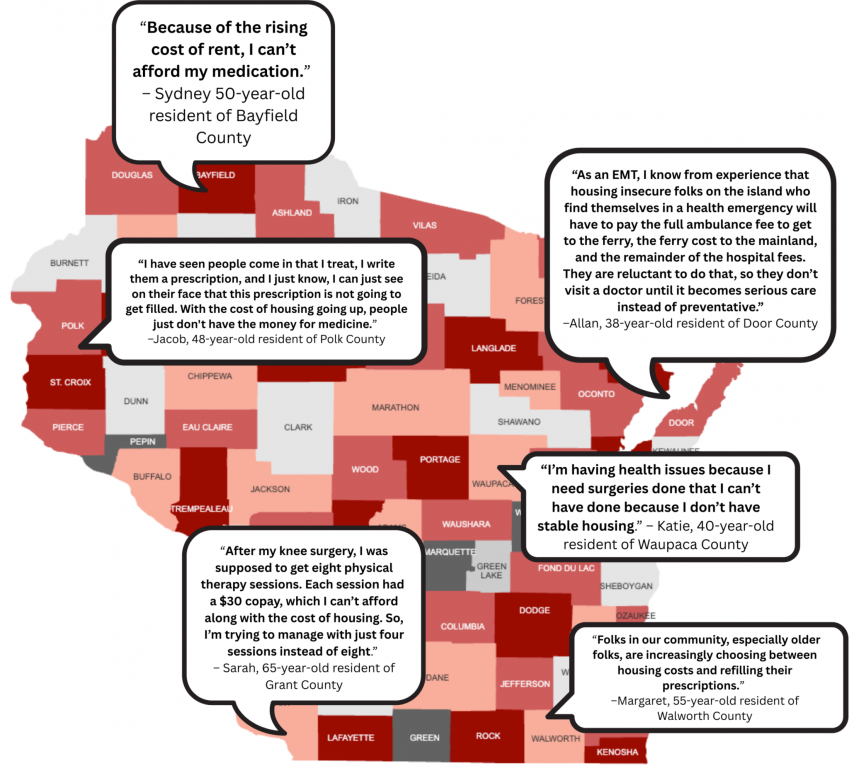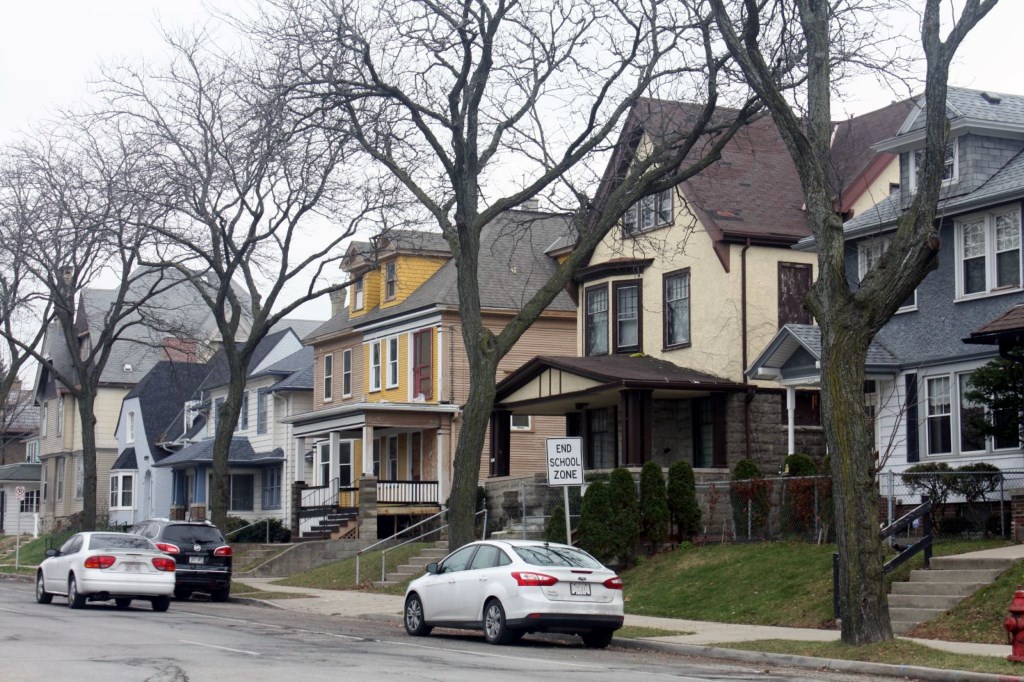Rising Housing Costs Forcing Some to Delay Medical Care
UW report finds some in Wisconsin can't afford both housing and health care.
Rising housing costs have been forcing some Wisconsinites to delay medical care, which can lead to negative health outcomes for residents and communities.
That’s according to a new report from the University of Wisconsin-Extension as part of a project examining livability in rural communities led by Tessa Conroy, associate professor of agricultural and applied economics at UW-Madison.
“Housing financial stress is not an individual issue — it does impact the broader community’s health outcomes,” said Erin Gaede, a Ph.D. student in the sociology department at UW-Madison who conducted interviews for the study. “At a time when so many communities are actively discussing housing affordability and overburdened health systems, it’s so important to understand how housing financial stress and health are connected.”
Compared to the average across Wisconsin, Illinois, Indiana, Michigan and Ohio, “Wisconsin has consistently faster growth rates in housing price since the start of 2021,” the report stated.
The report identified those facing housing financial stress as households spending more than 30 percent of their income on housing expenses. It used data from the U.S. Census Bureau’s American Community Survey.
In Wisconsin, 18.6 percent of owner-occupied households pay 30 percent or more of their income on housing, while 35 percent of renting households pay 30 percent or more of their income on housing, the report said.
More than 330,000 renting households experienced housing financial stress in Wisconsin, while more than 230,000 owner-occupied households with mortgages experienced financial stress from housing, according to the report.
Another more than 90,000 owner-occupied homes without mortgages experienced financial stress, the report said. Those homeowners are typically retired and on a limited income who face non-mortgage costs like insurance, utilities and property taxes, the report says.

This map shows quotes from Wisconsinites describing how housing financial stress can negatively affect health care. Names and locations have been changed to protect the confidentiality of participants. Graphic Courtesy of UW-Madison-Extension
Interviews highlight delayed care
In addition to compiling data, researchers used interviews with community members across the state about housing financial stress to learn about how stress forces some to prioritize housing expenses over medical care. That trend was especially pronounced among older residents on limited incomes.
She said interview subjects described not picking up prescriptions, skipping rehabilitation sessions and not scheduling follow-up appointments.
One of those subjects was a 65-year-old woman from Grant County who had a knee surgery and was prescribed eight physical therapy sessions, Gaede said.
“This woman had health insurance, but even with health insurance, the co-pay for each visit was too much,” Gaede said. “She told me that she couldn’t afford this additional cost along with the cost of her housing. Instead, she told me that she’s trying to manage with four sessions instead of eight.”
Gaede also interviewed a registered nurse in Portage County who told her that community members facing housing financial stress regularly skip medical care and end up seeking treatment in emergency rooms for issues that could have been managed or prevented with routine care.
“We know that these non-emergency visits [to the emergency room] are significantly more expensive and further strain hospital resources, making it harder for true emergencies to receive any kind of timely care,” she said.
Gaede said issues around delayed health care arose organically from her interviews with Wisconsinites. She said she did not write specific questions for the interviews about health care or hospital care, but asked broadly how housing stress impacts health.
Homeowners more likely than renters to delay medical care
The report found some evidence that Wisconsin counties with higher levels of housing financial stress among homeowners are associated with a larger share of the population in poor or fair health.
The report also noted renters generally tend to be younger and with fewer health issues than homeowners.
“Even though housing stress is more common among renters, the relationship between health and housing challenges is likely more pronounced among the older home-owning segment of the population,” the study states. “In other words, the relationship between housing financial stress and well-being, as defined by our simple health measure, is an interplay between age, income, housing financial stress.”
The report recommends that community and state efforts to address housing shortages and affordability make sure to include voices from the health care sector.
Steven Deller, a professor of agricultural and applied economics at UW-Madison who worked on the report, said he believes the more perspectives talking about housing issues and how they connect to other quality of life concerns, the better.
“The decision-makers will get a better insight into kind of the nuances of what’s going on,” he said. “As communities are thinking about this stuff, they need to be having a broader community conversation.”
Rising housing costs are forcing some Wisconsinites to delay medical care, new report says was originally published by Wisconsin Public Radio.






















